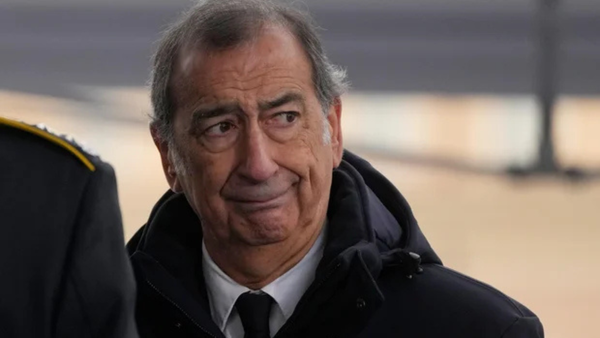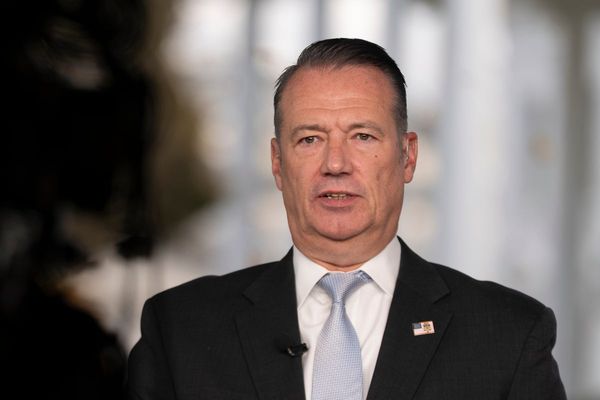
Julie Bishop has vowed to stay on as chancellor of the Australian National University after the vice-chancellor tendered her resignation, ending a tumultuous two years at the institution marked by redundancies, proposed course closures and allegations of a toxic work culture.
Bishop confirmed on Thursday morning that Prof Genevieve Bell had resigned from ANU, with provost Rebekah Brown to be interim vice-chancellor until a replacement is found.
Bell said she would return to ANU’s School of Cybernetics as a distinguished professor after taking a period of study leave, adding it was “not an easy decision” to make and being the university’s 13th vice-chancellor had been an “extraordinary privilege and also a heavy responsibility”.
“I believe firmly in our delivering on our national mission … and know that doing this requires a solid financial, cultural and operational foundation,” she said in the Thursday statement.
“I very much want to see the ANU thrive into the future and for it to continue to be a remarkable place and I don’t want to stand in the way of that.”
Pressure was mounting for Bell to exit after five of the six college deans advised the council and chancellor that they no longer had confidence in her leadership, sources confirmed.
Last week, Bishop held a full day of meetings on campus with deans, council members and members of the union, sources told Guardian Australia.
Sign up: AU Breaking News email
She returned to campus on Wednesday to meet members of the ANU governance project, a group of academics and staff who formed this year amid a growing “crisis of confidence” in leadership at the university, and again met members of the union on Thursday morning.
It followed the release of a scathing report by the governance project which found 96% of about 600 respondents believed ANU’s governance was not fit for purpose and should be reformed.
Labor senator Tony Sheldon joined independent senator David Pocock, the union, student groups and sectors of the academic community in calling in to question Bishop’s future after Bell.
“Under [Bishop’s] leadership, the council signed off on sweeping restructures, oversaw rising dissatisfaction among students and staff … and failed to provide transparency around serious governance concerns,” he said.
“The ANU community has been left with deep questions about how its institution has been run, and Julie Bishop must now answer them.”
In a press conference on Thursday, Bishop said there were “no grounds” for her to step aside and she had the full backing of council to continue her tenure until 2026.
“The university’s financial situation … began a very long time ago,” she said. “We’re not the only university that has found itself in this kind of difficulty.”
ANU’s governance has come under increased scrutiny over a drastic restructure that has led to at least 399 redundancies and the proposed disestablishment of the Australian National Dictionary Centre, the centre for European studies, the humanities research centre and the ANU School of Music.
About 100 staff are still facing the axe as part of the Renew ANU process, the National Tertiary Education Union estimates.
An investigation into ANU by the The Tertiary Education Quality and Standards Agency (Teqsa) is ongoing after “significant concerns” were raised by Jason Clare in a rare commonwealth intervention into university governance in June.
ANU has since released its self assurance report and cover letter for Teqsa, and will undertake its own investigation into its council and senior leadership team after a prominent academic, Liz Allen, alleged at a Senate inquiry last month that she was “bullied into near suicide” while serving on ANU’s university council and suffered a miscarriage in the weeks after two distressing meetings with Bishop.
The notice to Teqsa revealed there had been 627 psychosocial risk and hazard reports logged by staff in 2024 and 337 in the year to date.
Bishop told an all-staff town hall meeting on Thursday that she rejected “each and every allegation” Allen had made against her and had provided a written right of response to the inquiry.
Bishop said the committee hearing was the first time she was given notice of the allegations, adding Allen’s “ventilation” was “compromising” to other witnesses.
Pocock said while there was “broad understanding of the need to put the ANU on a more sustainable financial footing, there have been serious failures of leadership and governance in the implementation of Renew ANU”.
He said any further forced redundancies must be stopped until there was “transparency” over ANU’s finances and “genuine consultation” with staff.
The NTEU ACT division secretary, Dr Lachlan Clohesy, welcomed news of Bell’s resignation but said she would not be “the last vice-chancellor to go” if other universities “fail to heed the lessons of what has gone wrong”.
“ANU leadership has taken an approach of moving fast and breaking things,” he said. “Unfortunately, too many of those things were people.”
A grassroots group of academics campaigning against the staff cuts, Our ANU, said the “issues at the heart of this crisis go beyond the vice-chancellor”.
“This has been years in the making, the product of deep governance failures.”







